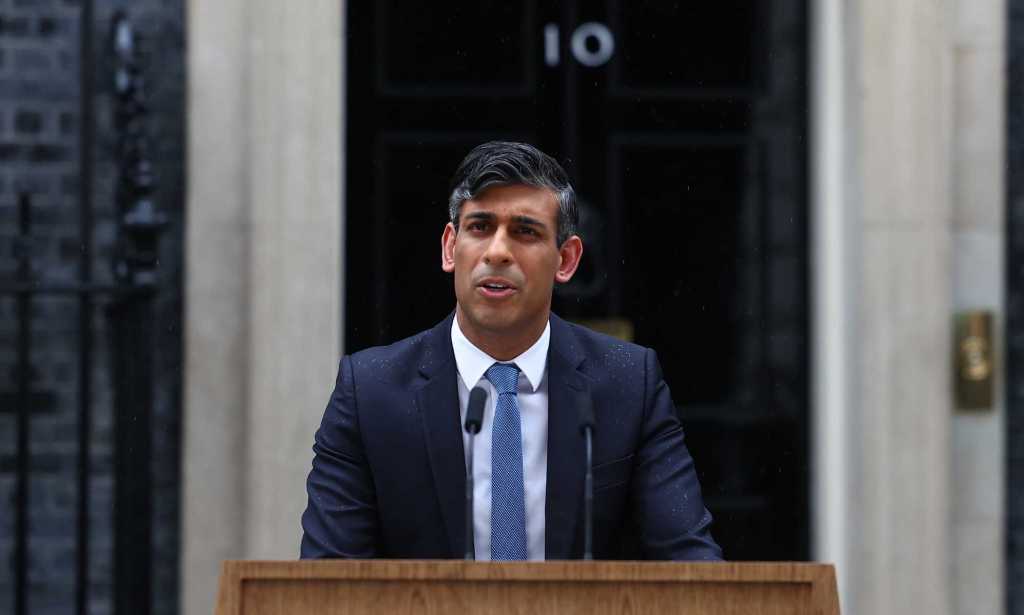Tories pledge to re-write Equality Act so trans people can be banned from single-sex spaces
The Conservatives have pledged to exclude trans people from single-sex spaces if they win the general election by rewriting the Equality Act to make sex mean ‘biological sex’.
This is the first such election proposal the Tories have issued relating to equality and LGBTQ+ issues since the general election was announced for July 4.
The party said reforming the law would clear up “confusion” for public bodies, businesses and institutions about female-only spaces and make it “simpler for service providers for women and girls, such as those running sessions for domestic abuse victims, to prevent biological males from taking part”.
A change in the law, which has previously been discussed to much controversy and backlash from LGBTQ+ people and groups, could see trans women barred from entering single-sex spaces such as toilets, female prisons and hospital wards even if they have a Gender Recognition Certificate (GRC).
It is unclear how such changes would impact trans men who hold GRCs accessing male-only spaces, as it appears the Tories have conveniently forgotten they exist.

Commenting on the proposal on Sunday evening (2 June), prime minister Rishi Sunak said the “safety of women and girls is too important to allow the current confusion around definitions of sex and gender to persist”.
He said the Tory party believe making the change “will enhance protections in a way that respects the privacy and dignity of everyone in society” because the party is “taking an evidence-led approach to this issue so we can continue to build a secure future for everyone across the whole country”.
Sunak also posted on social media: “Biological sex matters. We’re protecting women and girls.”
The Conservatives official X/Twitter account then subsequently wrote: “We know what a woman is. Keir Starmer doesn’t.”
Women and equalities minister Kemi Badenoch also said on Sunday (2 June): “Whether it is rapists being housed in women’s prisons, or instances of men playing in women’s sports where they have an unfair advantage, it is clear that public authorities and regulatory bodies are confused about what the law says on sex and gender and when to act – often for fear of being accused of transphobia, or not being inclusive.”
If the definition of sex is changed to mean ‘biological sex’ the Tories have, however, said the reform would not take away the protections against discrimination on the basis of gender reassignment, which is also included under the Equality Act and GRCs would still legally align people with their gender in legislation outside of equality law, such as marriage law.
Alongside this, Sunak’s party said gender recognition would be made into a reserved matter – in other words, a law where Westminster retains exclusive power to legislate, rather than devolved bodies in Scotland, Wales or Northern Ireland – so “an individual can only have one sex in the eyes of the law in the United Kingdom”.

In April 2023, the Equality and Human Rights Commission (EHRC) – the UK’s human rights watchdog – published a letter to Badenoch in response to a request for advice on amending the definition of ‘sex’ in the Equality Act.
At the time, chair Baroness Kishwer Falkner wrote that whilst there “is no straightforward balance”, defining sex as “biological sex” could “bring greater legal clarity” in several areas, such as making it easier to “exclude trans women from women’s sport” and from single-sex spaces.
However, the letter also outlined a number of areas where changing the definition could pose “ambiguous or disadvantageous” results, namely that it would allow trans men to bring forward the kind of equal pay or sex discrimination complaints reserved for women.
Helen Belcher, chair of TransActual, described the EHRC letter as “driven by political desire and manufactured fear more than any systematic evidence”.
“By insinuating in its previous advice that organisations should exclude trans people from single-sex services and spaces, and now proposing that parliament actively considers effectively removing trans people from sex-based protections under the Equality Act, the EHRC continues demonstrating its inability to fight for human rights for everybody,” she said at the time.
“Trans people no longer seem to be people in their eyes. Our pains and struggles are seemingly irrelevant.”
How did this story make you feel?

